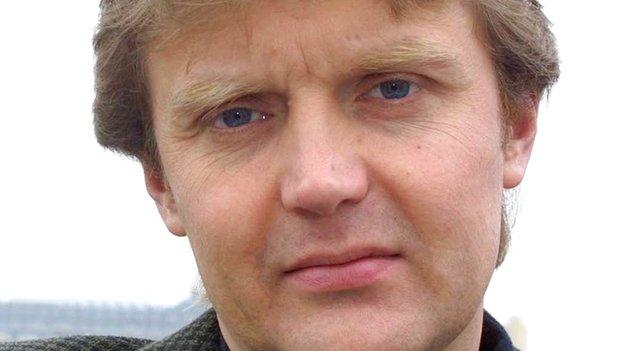Alexander Litvinenko: Ex-general 'contaminated' in office
- Published
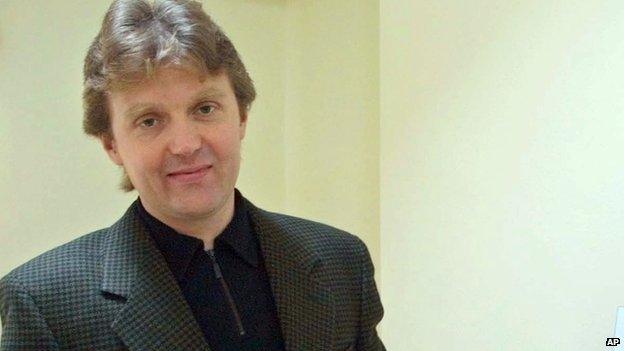
Alexander Litvinenko died three weeks after he consumed tea laced with polonium-210
A retired army major-general tested positive for a radioactive substance after a visit from two men suspected of poisoning former Russian spy Alexander Litvinenko, an inquiry has heard.
John Holmes said the "substantial contamination" closed the office of his security firm Erinys for four months.
Mr Litvinenko brought two contacts, Andrei Lugovoi and Dmitri Kovtun, to the meeting on 16 October 2006.
The duo are now wanted for Mr Litvinenko's murder.
Failed attempt
Mr Litvinenko, who fled Russia for the UK in 2000, was working for British intelligence services during his time in London.
Mr Holmes, who served with the British Army between 1970 and 2002, said his private security firms had also paid the former spy thousands of pounds to investigate Russian individuals.
Mr Litvinenko was also asked to help improve access to Russian gas giant Gazprom, one of the world's biggest companies, for Mr Holmes's business Erinys.
It is now believed that Mr Lugovoi and Mr Kovtun may have attempted and failed to poison Mr Litvinenko on the day of the meeting at Erinys in London.
They have previously denied the accusations.
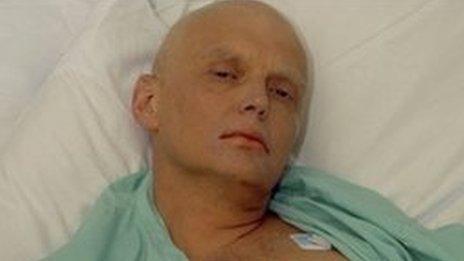
Mr Litvinenko died at University College Hospital
Mr Litvinenko died three weeks after he consumed tea laced with polonium-210 on 1 November in the company of Mr Lugovoi and Mr Kovtun at the Millennium Hotel in London's Grosvenor Square.
Mr Holmes told the inquiry that a break-in at his offices in Mayfair had happened five to six weeks before the meeting.
Mr Holmes said "in hindsight" he now suspects it was linked to Mr Litvinenko.
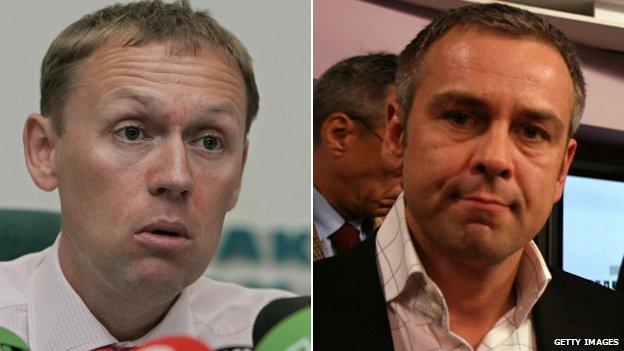
Andrei Lugovoi and Dmitri Kovtun deny any involvement and remain in Russia
The inquiry also heard a statement from Clifford Knuckey, a former Scotland Yard officer and director of another private security firm, Risc Management, which worked with Mr Litvinenko as a source.
Mr Knuckey described Mr Litvinenko as "tiresome" and "less than objective", adding he would only rely on "20%" of what Litvinenko would say.
- Published3 February 2015
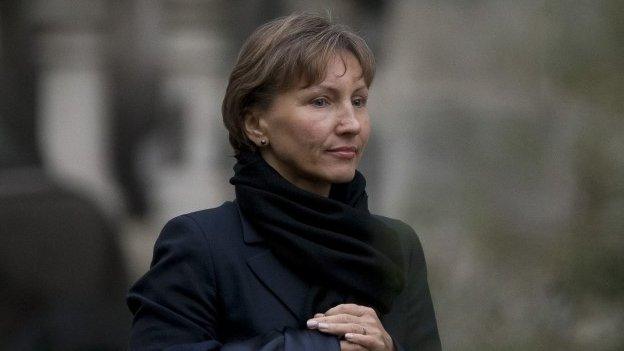
- Published2 February 2015

- Published27 January 2015
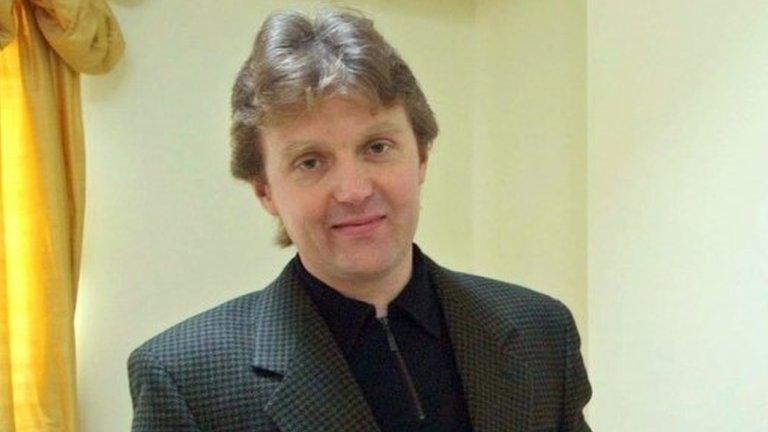
- Published21 January 2016
